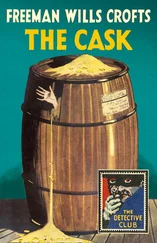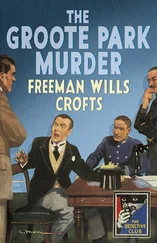Freemann Wills Crofts - The Cask
Здесь есть возможность читать онлайн «Freemann Wills Crofts - The Cask» — ознакомительный отрывок электронной книги совершенно бесплатно, а после прочтения отрывка купить полную версию. В некоторых случаях можно слушать аудио, скачать через торрент в формате fb2 и присутствует краткое содержание. Жанр: unrecognised, на английском языке. Описание произведения, (предисловие) а так же отзывы посетителей доступны на портале библиотеки ЛибКат.
- Название:The Cask
- Автор:
- Жанр:
- Год:неизвестен
- ISBN:нет данных
- Рейтинг книги:3 / 5. Голосов: 1
-
Избранное:Добавить в избранное
- Отзывы:
-
Ваша оценка:
- 60
- 1
- 2
- 3
- 4
- 5
The Cask: краткое содержание, описание и аннотация
Предлагаем к чтению аннотацию, описание, краткое содержание или предисловие (зависит от того, что написал сам автор книги «The Cask»). Если вы не нашли необходимую информацию о книге — напишите в комментариях, мы постараемся отыскать её.
The Cask — читать онлайн ознакомительный отрывок
Ниже представлен текст книги, разбитый по страницам. Система сохранения места последней прочитанной страницы, позволяет с удобством читать онлайн бесплатно книгу «The Cask», без необходимости каждый раз заново искать на чём Вы остановились. Поставьте закладку, и сможете в любой момент перейти на страницу, на которой закончили чтение.
Интервал:
Закладка:
PART I—LONDON
CHAPTER I – A STRANGE CONSIGNMENT
Mr. Avery, managing director of the Insular and Continental Steam Navigation Company, had just arrived at his office. He glanced at his inward letters, ran his eye over his list of engagements for the day, and inspected the return of the movements of his Company’s steamers. Then, after spending a few moments in thought, he called his chief clerk, Wilcox.
“I see the Bullfinch is in this morning from Rouen,” he said. “I take it she’ll have that consignment of wines for Norton and Banks?”
“She has,” replied the chief clerk, “I’ve just rung up the dock office to inquire.”
“I think we ought to have it specially checked from here. You remember all the trouble they gave us about the last lot. Will you send some reliable man down? Whom can you spare?”
“Broughton could go. He has done it before.”
“Well, see to it, will you, and then send in Miss Johnson, and I shall go through the mail.”
The office was the headquarters of the Insular and Continental Steam Navigation Company, colloquially known as the I. and C., and occupied the second floor of a large block of buildings at the western end of Fenchurch Street. The Company was an important concern, and owned a fleet of some thirty steamers ranging from 300 to 1000 tons burden, which traded between London and the smaller Continental ports. Low freights was their specialty, but they did not drive their boats, and no attempt was made to compete with the more expensive routes in the matter of speed. Under these circumstances they did a large trade in all kinds of goods other than perishables.
Mr. Wilcox picked up some papers and stepped over to the desk at which Tom Broughton was working.
“Broughton,” he said, “Mr. Avery wants you to go down at once to the docks and check a consignment of wines for Norton and Banks. It came in last night from Rouen in the Bullfinch. These people gave us a lot of trouble about their last lot, disputing our figures, so you will have to be very careful. Here are the invoices, and don’t take the men’s figures but see each cask yourself.”
“Right, sir,” replied Broughton, a young fellow of three-and-twenty, with a frank, boyish face and an alert manner. Nothing loath to exchange the monotony of the office for the life and bustle of the quays, he put away his books, stowed the invoices carefully in his pocket, took his hat and went quickly down the stairs and out into Fenchurch Street.
It was a brilliant morning in early April. After a spell of cold, showery weather, there was at last a foretaste of summer in the air, and the contrast made it seem good to be alive. The sun shone with that clear freshness seen only after rain. Broughton’s spirits rose as he hurried through the busy streets, and watched the ceaseless flow of traffic pouring along the arteries leading to the shipping.
His goal was St. Katherine’s Docks, where the Bullfinch was berthed, and, passing across Tower Hill and round two sides of the grim old fortress, he pushed on till he reached the basin in which the steamer was lying. She was a long and rather low vessel of some 800 tons burden, with engines amidships, and a single black funnel ornamented with the two green bands that marked the Company’s boats. Recently out from her annual overhaul, she looked trim and clean in her new coat of black paint. Unloading was in progress, and Broughton hurried on board, anxious to be present before any of the consignment of wine was set ashore.
He was just in time, for the hatches of the lower forehold, in which the casks were stowed, had been cleared and were being lifted off as he arrived. As he stood on the bridge deck waiting for the work to be completed he looked around.
Several steamers were lying in the basin. Immediately behind, with her high bluff bows showing over the Bullfinch’s counter, was the Thrush, his Company’s largest vessel, due to sail that afternoon for Corunna and Vigo. In the berth in front lay a Clyde Shipping Company’s boat bound for Belfast and Glasgow and also due out that afternoon, the smoke from her black funnel circling lazily up into the clear sky. Opposite was the Arcturus, belonging to the I. and C.’s rivals, Messrs. Babcock and Millman, and commanded by “Black Mac,” so called to distinguish him from the Captain M’Tavish of differently coloured hair, “Red Mac,” who was master of the same Company’s Sirius. To Broughton these boats represented links with the mysterious, far-off world of romance, and he never saw one put to sea without longing to go with her to Copenhagen, Bordeaux, Lisbon, Spezzia, or to whatever other delightful-sounding place she was bound.
The fore-hatch being open, Broughton climbed down into the hold armed with his notebook, and the unloading of the casks began. They were swung out in lots of four fastened together by rope slings. As each lot was dealt with, the clerk noted the contents in his book, from which he would afterwards check the invoices.
The work progressed rapidly, the men straining and pushing to get the heavy barrels in place for the slings. Gradually the space under and around the hatch was cleared, the casks then having to be rolled forward from the farther parts of the hold.
A quartet of casks had just been hoisted and Broughton was turning to examine the net lot when he heard a sudden shout of “Look out, there! Look out!” and felt himself seized roughly and pulled backwards. He swung round and was in time to see the four casks turning over out of the sling and falling heavily to the floor of the hold. Fortunately they had only been lifted some four or five feet, but they were heavy things and came down solidly. The two under were damaged slightly and the wine began to ooze out between the staves. The others had had their fall broken and neither seemed the worse. The men had all jumped clear and no one was hurt.
“Upend those casks, boys,” called the foreman, when the damage had been briefly examined, “and let’s save the wine.”
The leaking casks were turned damaged end up and lifted aside for temporary repairs. The third barrel was found to be uninjured, but when they came to the fourth it was seen that it had not entirely escaped.
This fourth cask was different in appearance from the rest, and Broughton had noted it as not belonging to Messrs. Norton and Banks’ consignment. It was more strongly made and better finished, and was stained a light oak colour and varnished. Evidently, also, it did not contain wine, for what had called their attention to its injury was a little heap of sawdust which had escaped from a crack at the end of one of the staves.
“Strange looking cask this. Did you ever see one like it before?” said Broughton to the I. and C. foreman who had pulled him back, a man named Harkness. He was a tall, strongly built man with prominent cheekbones, a square chin and a sandy moustache. Broughton had known him for some time and had a high opinion of his intelligence and ability.
“Never saw nothin’ like it,” returned Harkness. “I tell you, sir, that there cask ’as been made to stand some knocking about.”
“Looks like it. Let’s get it rolled back out of the way and turned up, so as to see the damage.”
Harkness seized the cask and with some difficulty rolled it close to the ship’s side out of the way of the unloading, but when he tried to upend it he found it too heavy to lift.
“There’s something more than sawdust in there,” he said. “It’s the ’eaviest cask ever I struck. I guess it was its weight shifted the other casks in the sling and spilled the lot.”
He called over another man and they turned the cask damaged end up. Broughton stepped over to the charge hand and asked him to check the tally for a few seconds while he examined the injury.
Читать дальшеИнтервал:
Закладка:
Похожие книги на «The Cask»
Представляем Вашему вниманию похожие книги на «The Cask» списком для выбора. Мы отобрали схожую по названию и смыслу литературу в надежде предоставить читателям больше вариантов отыскать новые, интересные, ещё непрочитанные произведения.
Обсуждение, отзывы о книге «The Cask» и просто собственные мнения читателей. Оставьте ваши комментарии, напишите, что Вы думаете о произведении, его смысле или главных героях. Укажите что конкретно понравилось, а что нет, и почему Вы так считаете.
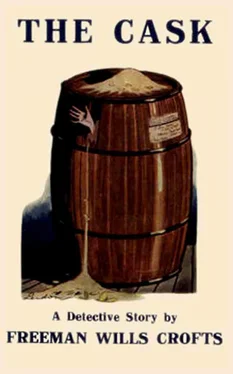

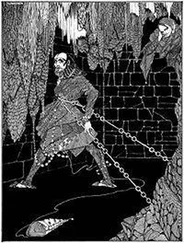
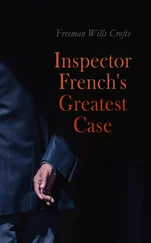
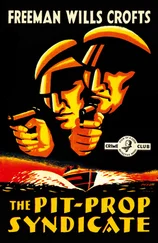
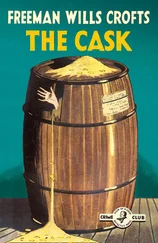

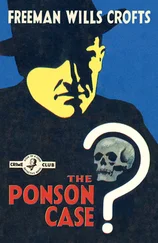
![Theresa Cheung - The Dream Dictionary from A to Z [Revised edition] - The Ultimate A–Z to Interpret the Secrets of Your Dreams](/books/692092/theresa-cheung-the-dream-dictionary-from-a-to-z-r-thumb.webp)

